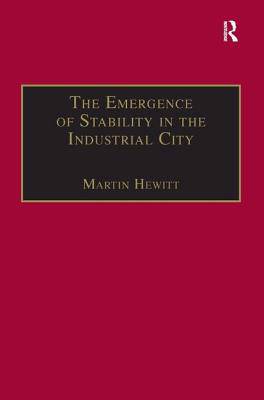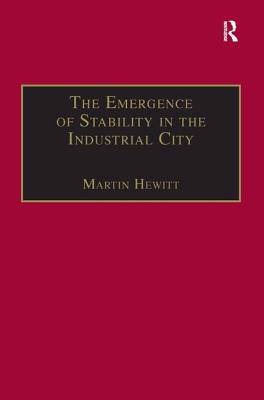
- Afhalen na 1 uur in een winkel met voorraad
- Gratis thuislevering in België vanaf € 30
- Ruim aanbod met 7 miljoen producten
- Afhalen na 1 uur in een winkel met voorraad
- Gratis thuislevering in België vanaf € 30
- Ruim aanbod met 7 miljoen producten
Zoeken
The Emergence of Stability in the Industrial City
Manchester, 1832-67
Martin Hewitt
Hardcover | Engels
€ 54,45
+ 108 punten
Omschrijving
The rapid eclipse of Chartism, and the relative tranquility of the period 1848-67 has been one of the most enduring puzzles of nineteenth-century British history. This book takes a fresh look at this conundrum, treating the period between the Reform Acts of 1832 and 1867 as a coherent whole for the first time. It suggests that previous depictions of 1848 as a watershed in British history have both exaggerated the nature of the transitions which occurred at mid-century, and have over-estimated both the collapse of radical attitudes and the fading of working-class resentment. The experiences of the Manchester working class show that poverty, unemployment and hardship persisted through the mid-Victorian boom. While some workers may have taken advantage of economic opportunities and the various movements of social and moral reform promoted by the middle class to acquire respectability, in general, attempts at middle-class 'moral imperialism' brought only marginal changes to popular culture and attitudes. Instead, it is argued, the roots of the radical collapse and of political stability lie elsewhere: in the initial failure of radical leaders to sustain a firm consensus on effective strategies of reform, and in changes in the political culture of the mid-century city which closed off spaces in which independent working-class politics could continue to function. In the context of the most important industrial city of the era, this study provides a wide-ranging analysis of the complex forces which forged the uneasy compromise on which mid-nineteenth century stability rested.
Specificaties
Betrokkenen
- Auteur(s):
- Uitgeverij:
Inhoud
- Aantal bladzijden:
- 352
- Taal:
- Engels
Eigenschappen
- Productcode (EAN):
- 9781859282762
- Verschijningsdatum:
- 28/03/1996
- Uitvoering:
- Hardcover
- Formaat:
- Genaaid
- Afmetingen:
- 162 mm x 242 mm
- Gewicht:
- 684 g

Alleen bij Standaard Boekhandel
+ 108 punten op je klantenkaart van Standaard Boekhandel
Beoordelingen
We publiceren alleen reviews die voldoen aan de voorwaarden voor reviews. Bekijk onze voorwaarden voor reviews.











